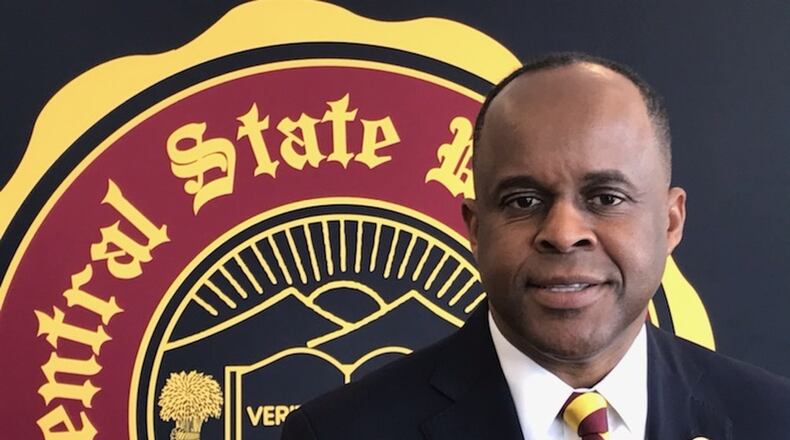“As Jack delivers and the institution grows and improves and fundraising occurs at levels that have never occurred at Central State before, you have to take care of people that do that,” Hatcher said.
Related: New president aims for national prominence for Central State
Thomas’ base salary is $250,000 for the first year. He’s scheduled for a $25,000 raise each of his next two years, making his pay in the final year of the contract $300,000.
In addition, he will get annual housing and car allowances of $54,000 and $12,000, respectively. Both will be paid in monthly installments. Thomas will also be reimbursed for business expenses, and he’ll be eligible for university offered health insurance and its retirement plan.
Like his predecessor Cynthia Jackson-Hammond, Thomas will not live in the president’s house on the CSU campus. The home is partially habitable, and it’s not suitable or big enough for the various events such as fundraisers that a university president would host at the resident, Hatcher said. Thomas and his wife are living in a Beavercreek Twp. home. He is responsible for any housing expenses that exceed the allowance, including the taxes, maintenance, utilities and the like.
Thomas, who led Western Illinois University for eight years before resigning amid political and racial tension, likely would have received a higher base pay if he had taken a position at a larger institution, Hatcher said. Therefore, Central State had to give him a competitive salary. In his final year at Western Illinois, Thomas’ base pay was about $270,500 plus benefits.
Related: Incoming CSU president says he stands in solidarity with those fighting for justice
Jackson-Hammond’s base pay in her last year as president was $269,000. She stepped down in June after eight years of leading the university.
Thomas, CSU’s ninth president, has the opportunity to earn annual bonuses if he achieves certain goals, which the board included in his contract. In his first year Thomas must:
- Maintain regional and specialized program accreditation.
- Begin and complete a 2020-2023 strategic plan.
- Begin and complete a marketing plan and timeline for implementation.
- Maintain retention rate in 2020-21 as established by the 2019-2020 baseline.
- Raise $2 million with an emphasis on individual, corporate, foundations and institutional donors.
The second year metrics will be determined by the board after Thomas completes the three-year strategic plan — the previous plan expired on June 30 — according to the contract.
The university has not included specific goals in past presidents’ contracts, Hatcher said. Jackson-Hammond was given goals, but they were not specific, nor were they embedded in her contract, Hatcher said. Instead, they were in an addendum that were more “aspirational.”
However, including tangible metrics in the presidents’ contract is a relatively new concept in higher education, so the current board adopted that for Thomas, Hatcher said.
“We wanted (to include) things that are important to the institution for its viability and sustainability,” Hatcher said. “But we also wanted them to be realistic and achievable.”
Related: Incoming CSU president, board chair form blue-ribbon task force
Months before Thomas’ contract took effect, he worked with the transition team and was involved in COVID-19-related decisions for the university. He also assembled a blue-ribbon task force comprised of seven experts from around the country who have vast higher education experiences, including leading universities. The group is working on a voluntary basis, and it will help shape and guide Thomas’ administration as he tries to tackle such issues as retention and graduation rates, and the school’s budget.
“Dr. Thomas’ qualifications, experience and vision for Central State University clearly supports his compensation package,” said Edwin Lloyd, president of the Central State University National Alumni Association.
About the Author
